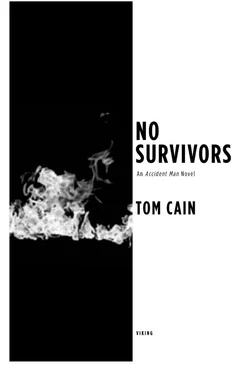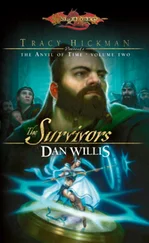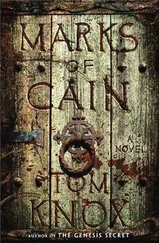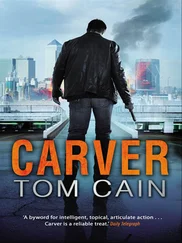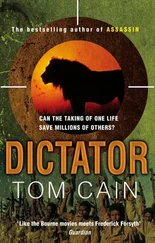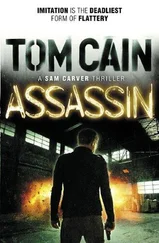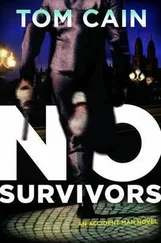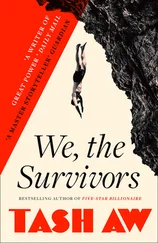Tom Cain - No survivors
Здесь есть возможность читать онлайн «Tom Cain - No survivors» весь текст электронной книги совершенно бесплатно (целиком полную версию без сокращений). В некоторых случаях можно слушать аудио, скачать через торрент в формате fb2 и присутствует краткое содержание. Жанр: Триллер, на английском языке. Описание произведения, (предисловие) а так же отзывы посетителей доступны на портале библиотеки ЛибКат.
- Название:No survivors
- Автор:
- Жанр:
- Год:неизвестен
- ISBN:нет данных
- Рейтинг книги:4 / 5. Голосов: 1
-
Избранное:Добавить в избранное
- Отзывы:
-
Ваша оценка:
- 80
- 1
- 2
- 3
- 4
- 5
No survivors: краткое содержание, описание и аннотация
Предлагаем к чтению аннотацию, описание, краткое содержание или предисловие (зависит от того, что написал сам автор книги «No survivors»). Если вы не нашли необходимую информацию о книге — напишите в комментариях, мы постараемся отыскать её.
No survivors — читать онлайн бесплатно полную книгу (весь текст) целиком
Ниже представлен текст книги, разбитый по страницам. Система сохранения места последней прочитанной страницы, позволяет с удобством читать онлайн бесплатно книгу «No survivors», без необходимости каждый раз заново искать на чём Вы остановились. Поставьте закладку, и сможете в любой момент перейти на страницу, на которой закончили чтение.
Интервал:
Закладка:
Ringo's single eyebrow knitted even more tightly as he considered the threat posed by this unfamiliar individual wearing white housepainter's overalls. He took a step back, positioning himself just to the rear of the door, making sure his field of fire was unimpeded, then motioned with the gun barrel, telling Carver to get out of the van.
Carver stepped out into the warm, scented sunshine, putting his hands up as he did so, the natural reaction of an innocent, inexperienced civilian confronted by a man with a gun. The Georgian pointed his gun at the worn, khaki canvas shoulder bag on the floor of the passenger compartment. He wanted Carver to retrieve it. Once again, Carver did as he was told. He carried out the apparently simple task in slow, distinct stages, making it clear at every point that he was doing nothing untoward.
Once he was standing upright again, with the bag in his hand, he opened it up for inspection. There were two cans of paint inside: one white gloss, brand-new and unopened, the other empty and stuffed with old rags. Alongside the cans lay three brushes of varying widths, a large can of paint thinner, a packet of potato chips, a glass one-liter bottle filled with orange juice, and a small, greaseproof-paper package.
"Sandwiches, for my lunch," said Carver in French, holding it up. He strongly doubted that the guard spoke the language, but he kept going anyway.
"I just came to do some painting. My patron said the woodwork in the kitchen and lounge needs touching up. Told me he'd spoken to the man that's renting the place… comprenez?"
Ringo glowered some more before he got out a phone and, still keeping one hand on his gun, hit the speed dial. He had a brief conversation in a language Carver had never heard before, but assumed must be Georgian. Then he signaled to Carver to get back in the van, and jerked his head in the direction of the house.
The baker started up the rackety engine once again and they headed up the hill, around the building to the parking area at the rear. There, the baker got out and walked toward the kitchen door, carrying a couple of shopping bags filled with provisions. He glanced nervously at the two dogs, standing by the wire cage, growling and barking at his approach as he knocked on the door. It opened and the brunette woman, Yoko, stuck her head out. She shouted at the dogs, who lowered their barking to a mean, resentful grumbling and backed away a few paces from the wire. Then she let the baker into the building.
Carver hung back, as if waiting his turn to say his piece. He was standing about fifteen feet away from the kitchen door, by the pile of firewood, under its wooden shelter. He looked around. There was no one watching him. He crouched down at the back of the log pile by the wall of the house and opened up his bag.
Over the next few seconds, he carried out a series of quick, precise actions. First, he took out the small packet of sandwiches and placed them in his pocket. Then he gently slid out a small log at the back of the pile, as if he were removing a brick from a Jenga tower, and shoved the bag of chips and the bottle of orange juice into the gap where the log had been. The canvas bag was tucked out of sight on the ground, in the shade of the shelter, right by the wall of the house. Carver left the bag open, with the can of paint placed across the top of the used paint can stuffed with rags.
Then he walked past the kitchen door. Inside, the baker was holding out a tray of pastries for Yoko to inspect. Again making sure that no one could see him, Carver opened his packet and lobbed the two sandwiches into the dogs' cage, where they were instantly devoured. He turned back again and hovered outside the kitchen door while the woman made her selection and the baker noted it down on a pad before picking up his tray again and going back to his van.
When it was his turn to speak, Carver stepped into the doorway and launched into the same garbled explanation of his presence that he had given the guard at the gate. Yoko looked puzzled at first, then anxious. She looked behind her, into the house, clearly trying to decide whether it was worth waking her boss. To Carver's relief, she concluded that it was not and started shooing him away, gabbling indignantly as she did so.
He took the hint and walked back to the van, where the baker was waiting with a grin plastered all over his face-the delighted smile of a man who has just seen another male getting it in the neck from an angry woman. As he got into the passenger seat, Carver shook his head ruefully and blew out his cheeks.
"Les femmes, hein? " he sighed.
The baker laughed, then started up the van, and they rattled away down the hill.
66
Ivan Sergeyevich Platonov, commonly known as Platon, was the man entrusted with expanding the Podolskaya crime clan's activities in Western Europe. He had been in bed in his Paris apartment with one of the women whose bodies provided so much of his gang's revenues when Olga Zhukovskaya called.
"How are you, Ivan Sergeyevich?" asked Olga Zhukovskaya.
"Very well, thank you, and you?"
"Also well. You know, my husband always spoke very warmly of you…"
"He was a great man. My condolences. You received my wreath, I hope."
"Yes, thank you, very impressive. I'm not disturbing you?"
The girl had woken up, yawned, and then dutifully started running her fingers down Platon's stomach. He shooed her away.
"Of course not. What can I do for you?"
"I need something collected, or perhaps retrieved would be a better word…"
While Platon listened, occasionally breaking in with specific, practical questions, the deputy director explained about a missing document, the property of the Russian people, that was currently sitting in a safe in a house in the South of France, about 550 miles from where he now lay. It was currently guarded by four Georgians, led by a low-rank gang leader named Bagrat Baladze. Within the next twenty-four hours, it would be either sold to a filthy Arab terrorist or stolen by the agents of an even more despicable American, unless Platon and his men could get to it first.
"You have fought for the Motherland in the past," said Zhukovskaya. "Now she calls you for one more mission."
There was something almost seductive in her voice; it was less the command of a senior officer than the request of a vulnerable woman made to a mighty warrior.
Platon wasn't falling for it.
"Naturally, I am a patriot," he said. "Even now, when I live as a peaceful businessman, I am willing to do my duty. But there will be costs. Men may die. Their families must be considered."
He had never paid a single ruble to a widow or orphan in his life, a fact of which Zhukovskaya was fully aware.
"Of course, you must be compensated," she agreed. "I was thinking, you may be aware that my late husband was involved in the production and sale of certain munitions, on behalf of the state."
Platon knew that, all right. Zhukovski had made a fortune flogging land mines until that English princess had stuck her interfering nose in his business. That had been the death of her… and of him, too. Since then, as political pressure against them grew, the mines had been rotting in warehouses all over Russia. But the illicit demand for them was unabated. Mines sold by the tens of thousands, and each one was worth three hundred U.S. dollars in pure profit. If he could secure the concession, there was a massive fortune to be made.
"I would be proud to assist my country, but it will not be easy," he said. "I must take my best men away from their current assignments. They will need equipment. And of course we must all get to the property as fast as possible. A helicopter will be the fastest method. The French make one called a Dauphin. It will easily seat six men and take us all the way there, right to the front door, with just one refueling stop. If I can charter one this morning, I can be at this place by early afternoon."
Читать дальшеИнтервал:
Закладка:
Похожие книги на «No survivors»
Представляем Вашему вниманию похожие книги на «No survivors» списком для выбора. Мы отобрали схожую по названию и смыслу литературу в надежде предоставить читателям больше вариантов отыскать новые, интересные, ещё непрочитанные произведения.
Обсуждение, отзывы о книге «No survivors» и просто собственные мнения читателей. Оставьте ваши комментарии, напишите, что Вы думаете о произведении, его смысле или главных героях. Укажите что конкретно понравилось, а что нет, и почему Вы так считаете.
